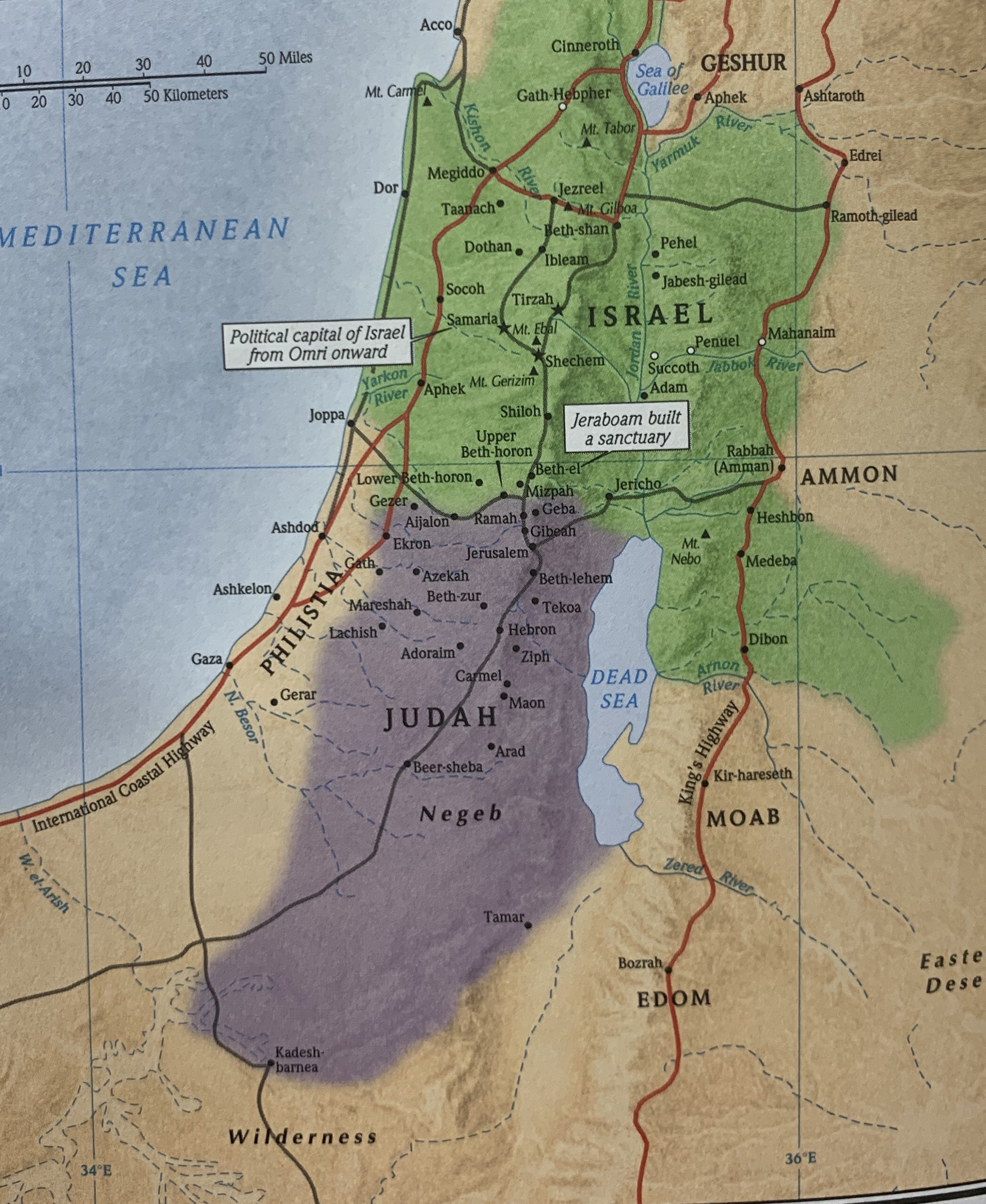#64. An Unusual Alliance

So King Jehoram went out of Samaria at that time and mustered all Israel. Then he went and sent to Jehoshaphat king of Judah, saying, “The king of Moab has rebelled against me. Will you go with me to fight against Moab?” And he said, “I will go up; I am as you are, my people as your people, my horses as your horses.” Then he said, “Which way shall we go up?” And he answered, “By way of the Wilderness of Edom.” So the king of Israel went with the king of Judah and the king of Edom, and they marched on that roundabout route seven days; and there was no water for the army, nor for the animals that followed them.
II Kings 3:6-9
One of the greatest events in military history is an account unlikely to be found in any military college, officer’s training course, or textbook on strategy for military success. It is the account in II Chronicles 20 of the armies of Moab, Ammon, and Mt. Seir coming to destroy Jehoshaphat and the nation of Judah. After praying to God for help and all of Judah worshipping the Lord, the army of Judah, small in comparison to the innumerable company coming against them, went out with singing led by the Levites. The Lord caused the three armies opposing Judah to fight amongst themselves so that when Judah arrived they could simply gather the spoils of war. The Lord fought for Judah and gave the people rest from their enemies.
With the rebellion of Moab against Israel, Jehoram was putting together an alliance to bring the Moabites back under his control. He first went to Jehoshaphat who had aligned himself with Ahab and with Ahaziah in military and business ventures.* Jehoshaphat quickly aligned himself with Israel yet again as Jehoram desired to go fight against Moab. Edom would be brought into the pact after Jehoshaphat.
From the examples of Jehoshaphat’s other alliances with Israel, it seems that Jehoshaphat should not have gone to war on the side of Israel or Edom. The Lord had given great victories to Judah in the past and help from other nations, namely those opposed to the Lord, was not needed. Nevertheless, all three nations had issues with Moab. Israel, Edom, and Judah (from the Dead Sea) all bordered Moab, and Judah had recently been invaded by Moab in an attempt to destroy it. So all three nations had reason to desire the destruction of Moab, which had signaled war by not paying tribute.
If you look at the map of Israel in the time of the kings (see top picture) you will note that Moab is situated directly opposite Judah across the Dead Sea. The typical way of entry into Moab from Judah or vice versa was the friendly northern terrain, into southern Israel and across the Jordan River. This was how Moab, Ammon, and Mt. Seir would have gone against Jerusalem so quickly in II Chron. 20 because they came from the Northern route with limited warning. This was the same route the Israelites crossed into the promised land after the death of Moses. The longer route was through the wilderness of Edom south of Judah and then North into Moab. The danger of this route was the inhospitable wilderness in the south, which could lead travelers many days without food or water. It was unlikely for a great army to travel this route, so Moab would not have anticipated an attack from this direction nor strengthened its defenses.
This dangerous southern route was the way chosen by Jehoshaphat, agreed to by Jehoram, and consented to by the king of Edom, a surprise attack on Moab from the south (farthest from Israel). Into the wilderness the armies went for seven days and found neither food nor water to replenish their stores. In one week, the optimistic allies went from preparing a surprise attack on Moab to being on the brink of destruction by the elements.
Our help does not come from wisdom or strategy, strength of arms, or will to succeed. Our help comes from the Lord. He who fought so wonderfully for Judah was able to cause a great army of mighty men to lay waste in the wilderness or to succeed in battle. As we go about our goals, work, and duties of the day, may we not stumble foolishly in our own craftiness because we forgot the Lord, but may we remember the Lord and bring glory to Jesus Christ our Savior by seeking first His Kingdom and righteousness in all that we do.
*See II Chronicles 20:35-37.
Copyright ©, LikeTheGreatMountains.com, 2020



0 Comments